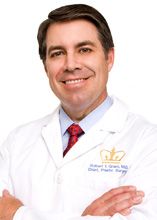Article
Protecting an Investment in Liposuction
Author(s):
Once an investment in liposuction has been made, it must be protected in order to reap its benefits for as long as possible.

A cosmetic procedure is a personal investment requiring both time and finances, with a trade-off of improved self-esteem and confidence. Once an investment has been made, it must be protected in order to reap benefits for as long as possible.
Liposuction is one such investment. Many men and women use the procedure to remove stubborn, hard-to-target fatty deposits that diet and exercise alone cannot touch. Liposuction has the ability to remove excess fat from many areas of the body, leaving those of otherwise normal weight with a smoother, leaner body contour. Though liposuction can help patients get over the roadblock they have reached with their diet and exercise routines, it is not the final solution.
After a liposuction procedure, it is important for the patient to resume the diet and exercise routine that got him or her to that point. Think of it as protecting your patient’s investment.
I always speak with my patients about continuing or enhancing their diet and exercise routines after liposuction procedures. This is important for a number of reasons, including:
Body Proporation
Liposuction procedures target troublesome areas and permanently remove the fat cells from specific locations. However, fluctuations in weight can still show in other areas, which can result in a patient’s body becoming disproportionate. Thus, maintaining a healthy weight will ensure the patient experiences long-lasting results.
Overall Health
Diet and exercise are all about establishing good habits for a long and healthy life. While liposuction can help shape a patient’s body to achieve the look he or she desires, there is no end line in a healthy lifestyle. To ensure the patient is healthy, rather than merely appearing to be healthy, a diet and exercise regimen must resume as soon as the healing process is complete.
Overcompensation
Sometimes, it is possible for the body to overcompensate for the lack of fat cells by increasing fat in other areas, including visceral fat. Since liposuction is a body sculpting procedure and not a weight loss surgery, it is important to make sure the patient maintains a healthy lifestyle and exercise routine after the operation, in order to dramatically decrease his or her chance of weight gain in other areas.
Return on Investment
Wall Street bankers do not invest their money in failing businesses, and taxi drivers do not invest in new cars just to drive them into walls. To achieve the most optimal physical results, patients should spend a significant amount of time working hard in the gym and eating right before considering liposuction, and then they should treat their post-surgery bodies with the same level of respect bankers and taxi drivers demonstrate towards their investments.
--
After liposuction, it is necessary for patients to allow time for their bodies to heal. Fortunately, liposuction patients are not down for long. I generally inform my patients that they will be able to resume light activity at 2 weeks post-surgery and return to full exercise routines in as little as 4 to 6 weeks. That said, each patient is different, so surgeons should discuss post-procedure exercise at follow-up visits to determine what is best for a patient’s individual needs.
Once patients are given the go-ahead to recommence usual activities, it is important to ensure they actually pick up where they left off. This will not only guarantee great liposuction results that last, but also produce the healthiest patients possible. After all, we always see our patients’ success as our own.
Robert T. Grant, MD, MSc, FACS, is Chief of the combined Divisions of Plastic Surgery at New York-Presbyterian Hospital-Columbia University Medical Center and New York-Presbyterian Hospital-Weill Cornell Medical Center. He is also Associate Clinical Professor of Surgery in the College of Physicians and Surgeons at Columbia University and Adjunct Associate Professor of Clinical Surgery at Weill Cornell Medical College. For more information about Dr. Grant or to contact him, visit his website at www.robertgrantmd.com.




